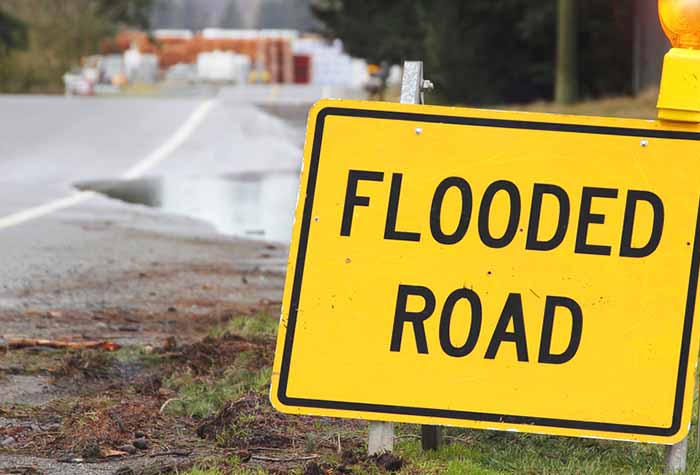A flood is an overflow of a large amount of water beyond its normal limits, especially over what is normally dry land. Some floods can occur suddenly and recede quickly. Others take days or even months to build and discharge.
When floods happen in an area that people live, the water carries along objects like houses, bridges, cars, furniture and even people. It can wipe away farms, trees and many more heavy items.
Sometimes there is no warning of flash floods, and that is why it is important to think of them and prepare for them before they happen. Here are a few things you can do.
Before the floods:
1. Know about your local relief centers and evacuation routes.
2. Keep emergency numbers and important information handy, as well as emergency supplies, kits, first aid items. These may include water, canned food, can opener, battery-operated radio, flashlight and protective clothing.
3. Fold and roll up anything onto higher ground (or upper floors of your home), including chemicals and medicines.
4. Make sure everything that is of importance is secured (jewelry, documents, pets, and other valuables).
5. Plant trees and shrubs and keep a lot of vegetation in your compound if you are in a low-lying area as that can control erosion and help soften the speed of the flowing water.
During the floods:
1. Flash floods occur in a short spate of time. As soon as they start, be quick, keep safe and ensure that children and elderly are safe by leaving the house to a higher ground.
2. Turn off all electrical appliance, gas, heating and the like if there is a bit of time.
3. Leave the area before it gets too late. Do not drive through the water as moving water can sweep you away.
4. Stay away from power lines or broken power transmission cables.
5. Try to keep away from flood water as it may contain chemicals or other hazardous materials.
After the floods:
1. Make sure you have permission from emergency officers to get back inside your house.
2. Keep all power and electrical appliance off until the house is cleaned up properly and an electrical personnel has confirmed that it is OK to put them on.
3. Make sure you have photographs, or a record of all the damage, as it may be needed for insurance claims.
4. Clean the entire home, together with all the objects in it very well before you use them again. They may be contaminated.
5. Wear appropriate gear (mask and gloves) before cleaning begins.




